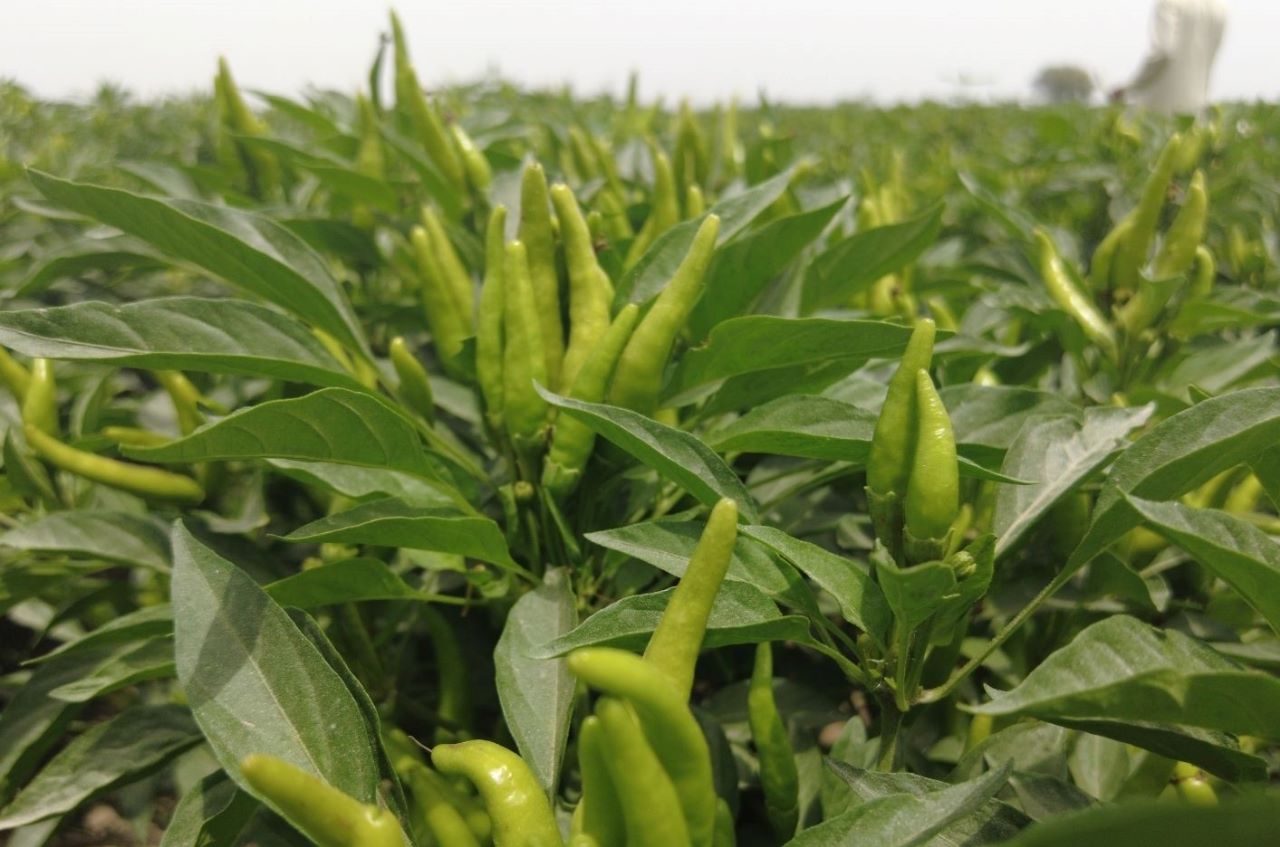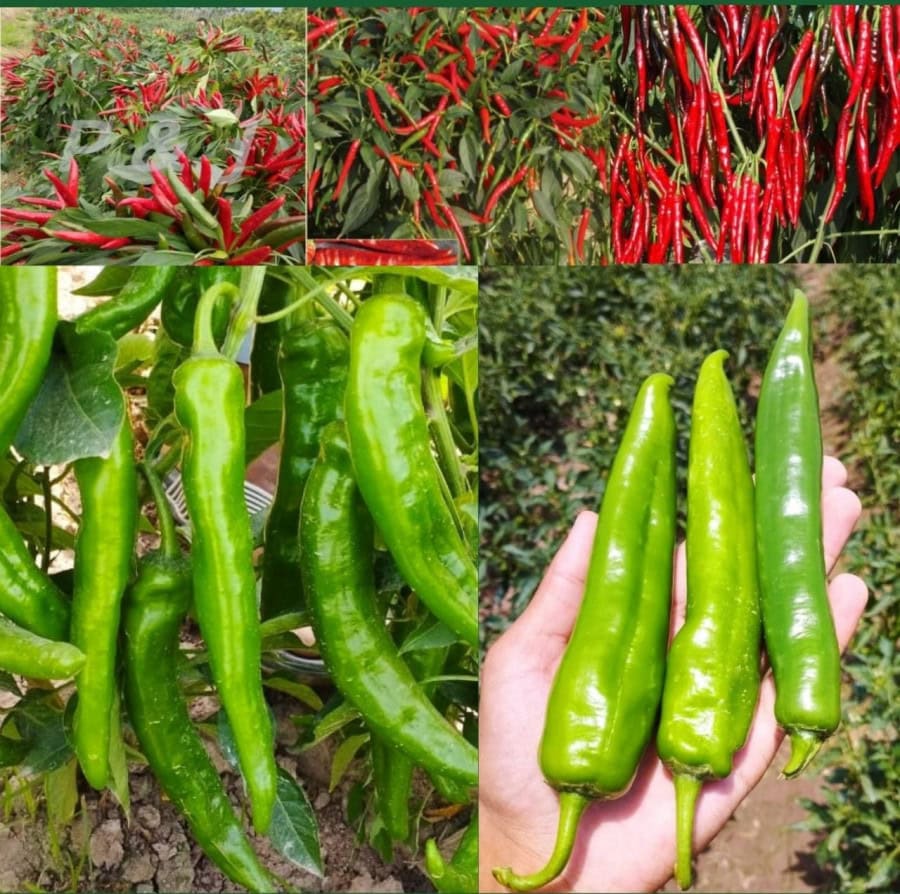Guard Agricultural Research & Services has claimed to have secured three-fold more yield from Chinese hybrid chilies varieties than indigenous varieties in successful cultivation in Sindh and Punjab.
“We have achieved 75 maunds per acre yield of chilies from three different Chinese varieties. Per acre yield of indigenous verities is 25-30 maunds,” said Dr Abdul Rashid, a farm scientist of the Guard Agricultural Research & Services.
The Chinese hybrid varieties whose fruit is over six inches long had been sown on 7,500 acres of land in different districts of Sindh and Punjab and will be cultivated on at least 30,000 acres of land in the next season, he said while briefing a group of journalists during a visit to a model chilies farm.
He said that Chinese company LTEC is collaborating with Guard under the China-Pakistan Economic Corridor (CPEC) to improve productivity of local crops and that all chilies yield will be purchased from the growers for its onward export to China.


The chilies’ export to China will be taken to at least $75 million per annum within five years, he said.
He said that Pakistan is importing chilies seeds worth Rs2 billion every year and hopes that the successful trial of these varieties in local environment will help gradually phase out these imports when local production of these hybrid seeds will gain momentum.
Babar Khan, the owner of the model farm, said he has harvested 70 maunds per acre yield from the hybrid seeds and hopes for a better production next season by using his experience in the first crop.
Dr Ashfaq, Director of Plant Protection at Nawaz Sharif Agriculture University, Multan, said that the hybrid varieties not only give better yield but also are resistant to diseases.
Pakistan-China red chilli project to help uplift Pakistan’s agriculture sector









